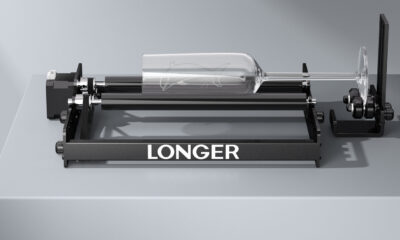Latest News
Introducing Android to the Raspberry Pi 3 will add more exciting options for this device
After the Raspberry Pi was unveiled into the market, it has been perceived as a small low-cost computer quite suitable for tinkerers. In addition, it was also highly lauded as an alternative way of training kids on the basics of coding. It is fundamental to note also that for the last four years, this platform has really gone through a lot of changes.
Raspberry Pi (the Raspberry Pi 3) has remarkable features which includes: a quad-core Cortex-A53 CPU at 1.2GHz with a 1GB of RAM, 802.11n wireless, VideoCore IV GPU clocked at 300-400MHz (3D clocked at 300MHz, video at 400MHz), and a rated power consumption of 4W. These features do not differ too much with the specifications of most of the medium-to-low-end Android smartphones nowadays. Although Google has not formally integrated the RBP 3 with an OS, there are reports that demonstrate that the company intends to officially keep Raspberry Pi with its version of the Android OS.
The verification of the potential for such support is the availability of an empty folder in the Google’s repository for Android Open Source Project (AOSP). A closer examination will draw you to a number of branches and devices which are available in the master directory for AOSP. It is quite obvious that many of them are not empty.
Adding the RBP 3 in this category would mean that Google plans to integrate this device with some thrilling features for future code updates and an Android OS. As it stands now, the RBP 3 is operated by Linux distros and a Windows IoT variant. Therefore, the introduction of Android support to the miniature computer would widen options for the device.
Integrating the modern Android OS into the Raspberry Pi would add more options around the hardware. Honestly and without intending any contempt to Windows 10 IoT or Linux, these OSs lack the depth of applications as Android system does. As the RBP hardware drastically advances, there is likelihood that it will reduce the gap between itself and modern tablets or smartphones by an additional margin. It has said that Raspberry Pi and Raspberry Pi 2 were both made based on 40nm process technology. But, it is not clear whether the Broadcom BCM2837 at the centre of the RBP 3 is made on 28nm technology or not. Even if it is not, this definitely widen room to press the hardware further in future iterations of the device while at the same time maintaining power consumption steady.
Google seems to be aggressive about supporting the RBP 3 with Android system but there is no official confirmation. That will open to the hardware up to new capabilities and projects without deviating at all from its initial mission to operate as a cheap introduction to computer programming and computing. Although Google has not communicated anything yet, let us hope consumers’ interests will ignite an official statement.































